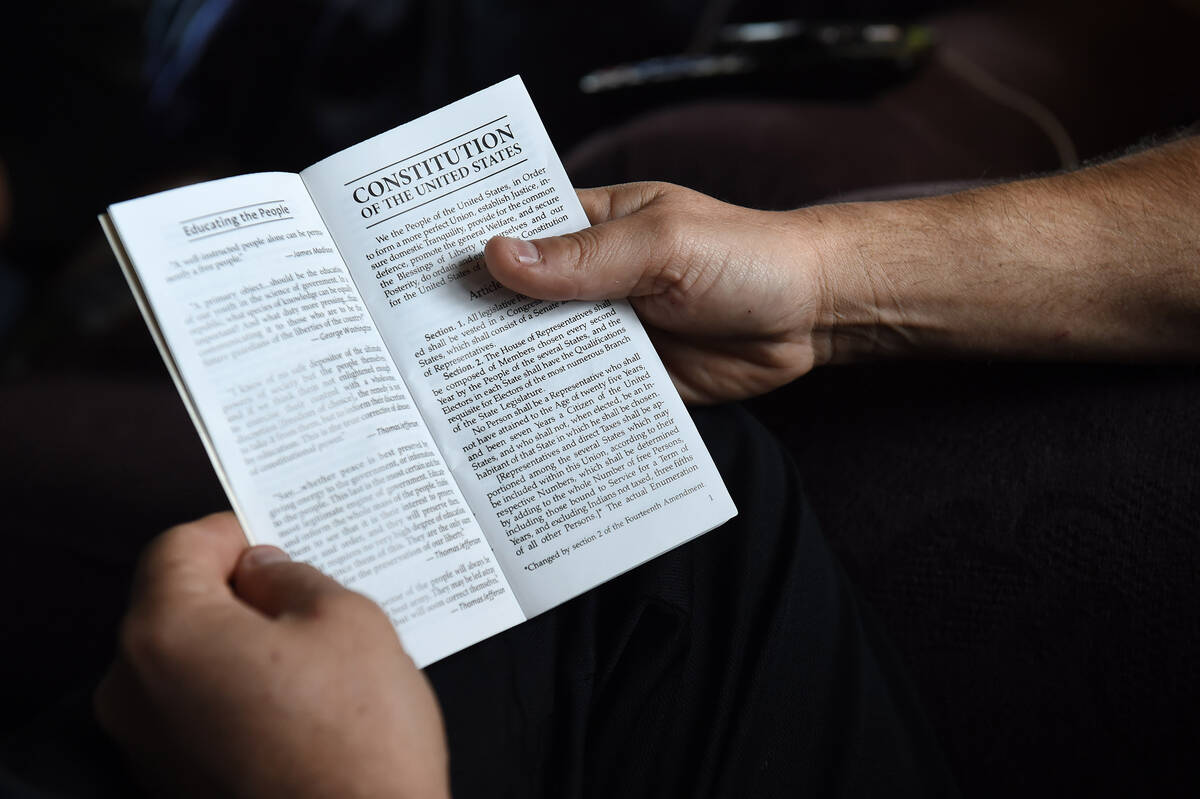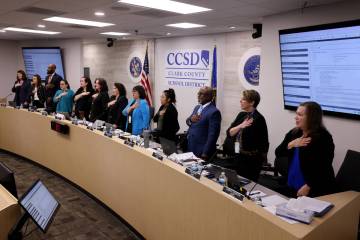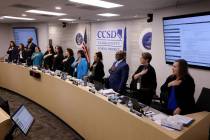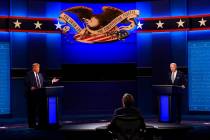EDITORIAL: Democrats push to limit speech
Senate Democrats — including Nevada’s two upper chamber representatives — have been pushing in recent years to rewrite the First Amendment to empower government bureaucrats to regulate political discourse. Now they also seek to silence those who provide financial support for advocacy groups.
On Thursday, the Senate failed to move the DISCLOSE Act, legislation that would require independent groups engaged in political activity to make public the names of large donors. The bill was all gussied up as a “good government” initiative, but was actually a stealth attempt to promote the harassment and intimidation of those who who don’t toe the progressive line.
“In general, the requirement could make some donors less likely to give … or make the advocacy groups less likely to engage in certain sorts of public communication,” Reason’s Elizabeth Nolan Brown wrote this week. “In this way, it could have a major chilling effect on free speech.”
In addition, “nearly any group can be said to discuss ‘public issues,’ ” Allen Dickerson, a Republican member of the Federal Election Commission, wrote last year for The Wall Street Journal. “Any distinction between speech about ‘public’ and ‘nonpublic’ matters would be hopelessly vague and dangerously susceptible to biased enforcement.”
Anonymous speech has a long and storied history in this nation dating to the Federalist Papers. Last year, the Supreme Court struck down as an affront to the First Amendment a California law requiring nonprofits to submit donor lists to the state. The court has also upheld the right of individuals to produce unsigned campaign literature, concluding in a 1995 case that anonymous speech is “not a pernicious, fraudulent practice, but an honorable tradition of advocacy and of dissent.”
Paving the way for those who yearn to “dox” donors to conservative causes represents only one line in the Democratic Party’s assault on free speech. Many Democrats have also endorsed a constitutional amendment to overturn Citizens United, the 2010 high court decision that affirmed the right of corporations, labor unions and other groups to make independent campaign expenditures. It’s worth remembering that, during oral arguments in the case, a government lawyer argued with a straight face that Congress had the right to pass laws banning politically themed books and pamphlets under the guise of promoting fair elections.
Democrats profess a great fealty to democracy. Yet they seem aghast at the idea of a vibrant and messy marketplace of ideas freed from government oversight. The DISCLOSE Act is unconstitutional and would serve to stifle rather than promote debate. Good riddance.






















